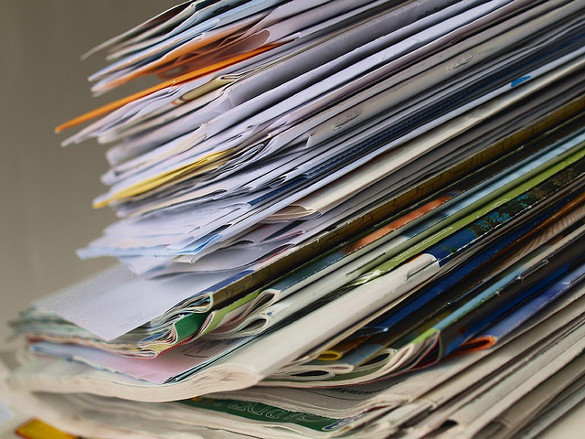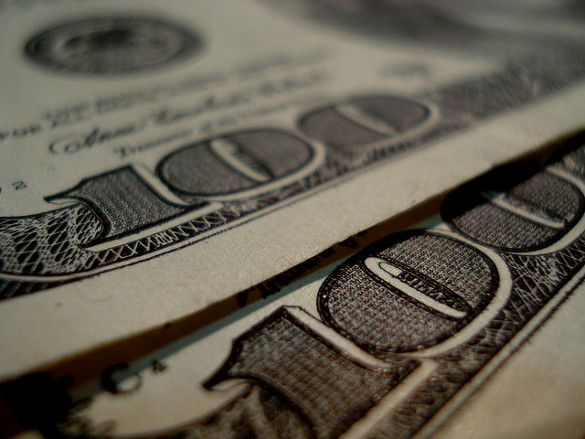[more link=”https://www.bootsnall.com/rtw/faq-planning-rtw-route.html”]Next RTW FAQ-Planning Your RTW Route[/more]
- What Should I Do With My Mail And Bills?
- Should I Bring Some Travelers Checks?
- Can I Just Use An ATM Card?
- Can I Use Credit Cards Everywhere?
- Should I Bring Some Actual Cash?
- How Can I Keep Cash Safe?
- Should I Always Keep My Money And Passport On Me?
What Should I Do With My Mail And Bills?
The US Post Office will only hold mail for you for up to 30 days, so that isn’t a long-term option. If you have a trusted friend or relative willing to receive your mail on the road, it will be a big help. Arrange to receive electronic billing for any recurring monthly expenses like cell phone and credit card, and have the amount automatically deducted from your checking account on a certain day every month. Be sure to check your account (on a secure computer) about once a week so that you can see any fraudulent charges and stop them quickly.

Should I Bring Some Travelers Checks?
In short, no. Even a decade or two ago traveler’s checks were the preferred method for dealing with cash on the road, but these days they are becoming a rarely-used tool for most seasoned travelers. It’s not that they are not still accepted in all the same places, it’s just that with ATMs being everywhere now, traveler’s checks are more hassle than they are worth to most people.
Can I Just Use An ATM Card?
For most travelers the ATM card is the primary weapon of choice these days, but check out the other money topics because some kind of a mix of ATM cards, credit cards, and a bit of cash is probably the best idea. The advantages of using ATM cards are many. You get to keep most of the money in your bank instead of in your money belt, and when you need it you can get it in the local currency at the exact fair and current exchange rate. Of course, you’ll be charged a transaction fee to pull out foreign currency abroad. You can keep the impact minimal if you take out larger sums less often since the fee is usually per transaction instead of a straight percentage. Some banks have a certain number of free out-of-system withdrawals per month, so check your situation before you leave home, or shop around to find the best bank for your needs.
Can I Use Credit Cards Everywhere?
No, unfortunately not. Credit cards are a great way to pay for things in many parts of the world, but in other areas they are useless. You should definitely bring one or more credit cards; however, you’ll need another method of payment in certain regions of the world. As you may know, businesses have to pay banks a small percentage of the transaction in order to accept your credit card. In places like Europe and the States, the business just eats the small fee themselves, but in parts of South America and Asia, for example, the fees are up to 10% and the business adds that onto your cost. In cases like this paying with just about any other method makes financial sense. Many credit cards add a surcharge to each international transaction, so make sure you check with your credit card companies before departing. There are certain cards, like Capital One, that have no or very favorable international surcharges, so if you have one of these cards, it pays to use it wherever you can.
Should I Bring Some Actual Cash?
Yes, in addition to what you might be bringing for the airport run and the first leg of your journey, you should bring some cash with you in case of an emergency. US Dollars are best, but Euros are quickly gaining the same sort of worldwide acceptance. Keeping an emergency fund (in a safe place, of course) of perhaps $100 will come in handy in many different situations. And believe it or not, there are places in quite a few countries where you can pull additional US Dollars out of ATMs to re-supply yourself along the way.

How Can I Keep Cash Safe?
Most of the usual common sense stuff applies here. It’s better to keep your wallet in your front pocket than in your back pocket as experienced thieves can be found in nearly every country on earth. There are many variations on the money belt idea as well. Most come with large compartments that will even carry your passport and they fit snuggly under your clothes, but these can be a bit awkward to access at times, especially if you don’t want to broadcast to everyone in the area that you have the thing. There are also some that can be worn around your neck, but they are pretty cumbersome.
Should I Always Keep My Money And Passport On Me?
This is something that is different for all travelers. Some will always keep their most valuable items – money, passport, credit cards – in their money belt on them at all times. Some will keep their passport and most of their money in a safe place in their room in case of a mugging. It’s all personal preference, and there’s a slight risk no matter what you do.
Return to FAQ Home
By this point, the planning process is nearing completion. The date could be drawing near, and the itinerary could be getting more and more set. Or maybe you chose the buy as you go option for your flights, so you want to leave your itinerary open. The next FAQ and article in the planning section deals with the itinerary and how open or planned it should be.
For an article that takes it a step further with how to handle money and credit cards while on the road, plus offers another checklist, make sure you check this out.
[more link=”https://www.bootsnall.com/rtw/faq-planning-rtw-route.html”]Next RTW FAQ-Planning Your RTW Route[/more]